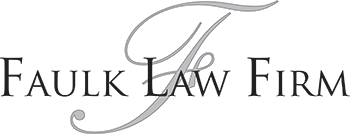Free the Nipple! (v. Ft. Collins)
There has been a lot of talk and posts regarding the (fairly) recent ruling from the 10th Circuit Court of Appeals regarding whether a municipality can enforce a ban regarding women’s breasts in public. Here is a basic explanation of what actually happened and how it will likely affect you, if at all.
First, the 10th Circuit actually made this ruling on February 15th, 2019. It was covered by some outlets at that time, but for whatever reason, wasn’t widely publicized. Basically two women, with the help of an organization named “Free the Nipple” sued Fort Collins, Colorado and claimed their municipal statute that prohibited the baring of women’s breasts below the areola was unconstitutional because it violated the “equal protection clause”. The Equal Protection Clause (14th Amendment) basically says that you cannot treat classes of individuals differently unless there is a good reason. The kind of discrimination and the type of people being discriminated against is the deciding factor on how good the reason has to be. For instance, if the government is going to treat black people differently from white people, they have to have a really, really good reason. In legal terms this is called “strict scrutiny” and the statute must be “narrowly tailored to serve a compelling government interest and must be the least restrictive alternative”
Gender based laws which treat men and women differently are subject to a lesser review called “intermediate scrutiny” wherein the state must prove the discriminatory law serves a specific, important governmental objective and the law must be substantially related to achieving those objectives. Interestingly, the most important case on this issue comes from an Oklahoma statute that once allowed women to drink beer at 18 and men to have to wait until they were 21. In Craig v. Boren, the US Supreme Court held that there was no good reason for treating men and women differently when it comes to drinking beer. (So ladies, blame some fraternity guy from OSU for making you wait til you are 21 to be able to drink beer).
That brings us to our current issue: nipples in public. Because the Ft. Collins law treats men and women differently (men can go shirtless, women can’t), Ft. Collins needed to prove that there is a specific governmental objective and the law is substantially related to achieving that objective. The lower court ruled that “The ordinance discriminates against women based on the generalized
notion that, regardless of a woman’s intent, the exposure of her breasts in public (or even in her private home if viewable by the public) is necessarily a sexualized act. Thus, it perpetuates a stereotype engrained in our society that female breasts are primarily objects of sexual desire whereas male breasts are not.” The lower court then told the city they could not enforce the topless ban through an injunction. Ft. Collins then appealed that decision to the 10th Circuit Court of Appeals (which is the Court of Appeals over Colorado, Oklahoma, Kansas, New Mexico, Utah and Wyoming).
The 10th Circuit mostly agreed with the lower court and upheld the injunction against enforcing the law. In doing so they first analyzed Ft. Collins’ stated reasons for the statute. Those reasons were basically that “female toplessness could disrupt public order, lead to distracted driving and endanger children.” The Court found that public order and traffic safety were important government objectives. However, the justification “must be genuine and not hypothetical.” The Court’s opinion noted that any objections of the basis of public order and traffic safety were likely grounded in the idea of morality rather than any real notion of public order or safety.
As for “endangering children”, the Court found children were already able to see nipples of breastfeeding mothers, and that nearby cities that allowed toplessness (Denver and Boulder) had no evidence of harm to children. Further, that the real reason of “protecting children” was more based upon a “negative stereotype depicting women’s breasts, but not men’s breasts, as sex objects” as opposed to their primary function as “feeding children”.
In upholding the injunction, the Court basically said they thought the Plaintiffs (Free the Nipple and the two ladies) would be able to easily win on their claim the law was a violation of the Constitution.
So where does that leave you, if you are a woman who wants to go topless in public? Well, it first depends on what state you are in. Other appellate courts, like the 7th Circuit, have ruled the other way and have upheld bans on topless women. Because there is a split in the appellate courts, a similar case may eventually reach the US Supreme Court and we will get a definitive answer. If you live in the 10th Circuit, then topless bans are presumably unconstitutional, at least for now. BUT (and it’s a BIG but), if you do decide to go topless in public, there is at least a good chance you will be stopped and maybe even arrested by the intrepid morality police, who don’t agree with the 10th Circuit. Then you get to fight your municipality or state over whether their statute is constitutional or not. With the current 10th Circuit ruling, you have a really good chance of winning, but it is also going to be a huge hassle and have some risks.
Anyway, hope you learned a little bit about constitutional law today!

